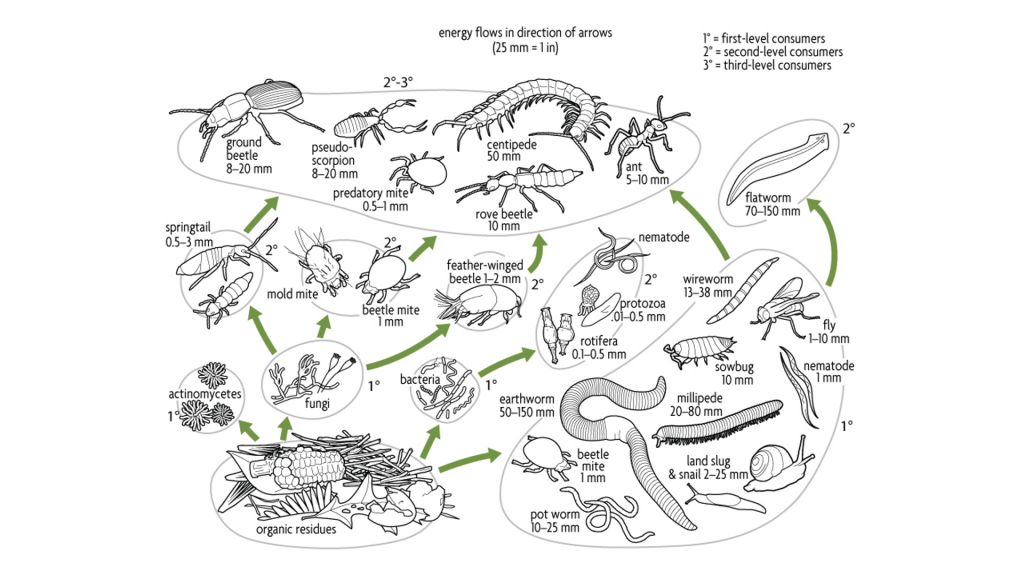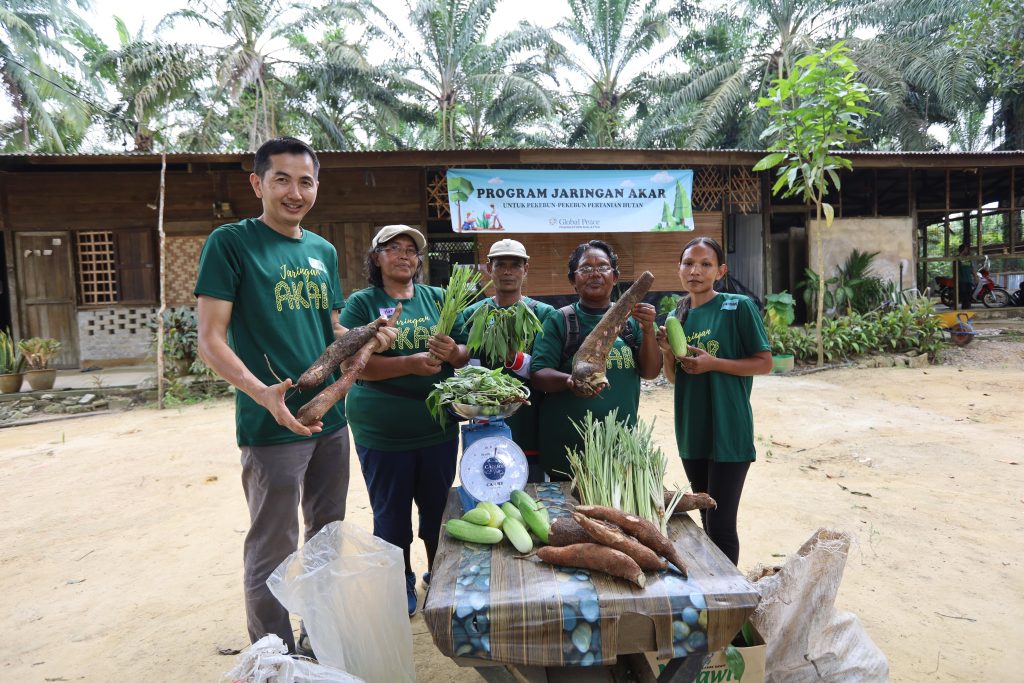As we continue to guide and coach the Orang Asli (OA) farmers in their syntropic farming journey, we realised how important enriching their knowledge of the natural environment is.
Because of this, we brought together the network of OA syntropic farmers once again, this time hosted by Pak Ali and his wife, Amai Norma, in Kg. Pinang for another round of Program Jaringan Akar.

This time around, the purpose of the event was to focus on knowledge sharing on the soil food web to further enhance their syntropic farms. This topic is of importance because as the passionate farmers develop their syntropic farms, regenerative practices become more vital in order to help them understand more about the principles of syntropic farming.
The workshop on soil food web led by Dr. Teh probed into microbes and their critical roles in regenerating the soil and its fertility.

The Living Soil
It’s hard to imagine that the soil is a living thing but the life inside it is what helps plants and trees bear fruit. These living creatures in the soil are called microbes – a microorganism vital to soil health.
Some other importance of microbes in the soil include provision of nutrients to the plant, re-structuring the soil so it becomes less impacted, creating a healthy network of roots so that the connected plants will be able to withstand droughts and to prevent the plants from diseases.
Soil organisms such as microbes also decompose organic compounds, including manure. They sequester nitrogen and they fix nitrogen from the atmosphere, making it available to plants instead.

There are also certain things that the farmers can do to encourage the presence of microbes in the soil such as covering the soil with mulch, feeding the soil (with compost, etc.), planting densely and avoiding the use of chemical fertilizers and pesticides. These steps will ensure a thriving ecosystem in the soil that will show through the health of plants and fruits.
Farmers are also encouraged to grow more biomass plants such as mombasa grass, acacia trees and others which can later be used as mulch which can stimulate the presence of good microbes.

The Soil Food Web
Soil organisms prey on crop pests and are food for above-ground animals.Once the population of microbes is thriving in the soil, it will attract other organisms, such as earthworms – which in return fortifies the soil even more. They do this through increasing the soil aeration, giving way for water movement and changing the structure of the soil.
As the earthworms decompose, nutrients are converted from one form to another and are made available to plants and other soil organisms. All plants, trees and crops depend on this cycle and food web for their nutrition and health.

While some farmers have already seen good progress, there are others that are still finding out ways to improve their farm plots so that they too may see some yield from their hard work. This is where the role of knowledge sharing comes in. In educating the OA farmers about soil health and fertility, we hope that they will be able to use this knowledge to boost and enhance their farm plots, so that the crops planted may grow healthily and produce harvest in time to come.
About Program Jaringan Akar
With the Program Jaringan Akar, the Global Peace team aims to foster a network between all the OA farmers that have begun Syntropic Farming. This network has now evolved into a knowledge-exchange hub that cultivates a culture of learning and teaching.

The Syntropic Farming project was initiated to encourage the OA communities to start growing their own food for nutritional benefits which can also be sold off to consumers once their farms have produced enough harvests. It is a long-term sustainable farming project that uses minimal costs and external factors so that the OA farmers can sustain it on their own.
Global Peace aids these farmers by sending them for training and providing tools and seedling subsidies. Apart from that, the team also guides the OA farmers as they begin their journey in syntropic farming through land preparation, coaching and monitoring. As the timeline progresses, the team also provides training and briefing on how the farmers can market their produce.
With enough dedication and passion, we believe the OA communities will be able to have food security and economic empowerment through this farming project.







1 Comment